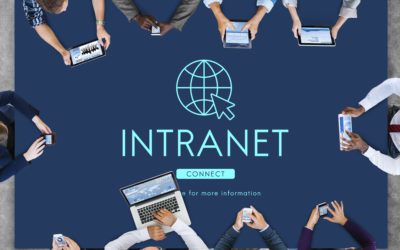The jury is still out on AI. Some studies claim it will displace workers. Others, like Forbes, claim that it will contribute to a 21 percent net increase in the US economy by 2030.
There’s a lot your company needs to consider before you jump into the brave new world that AI promises to offer, not the least of which is cybersecurity, data safety, and copyright infringement, which we’ve discussed in our latest Cybersecurity Crowd podcast. Even so, I’m an optimist when it comes to the future of AI.
Why? Because I believe AI can help us deepen our customer relationships and shorten our processes, so we can work better, and faster. I’m not alone in this view. In fact, Forbes recently reported that more than 60 percent of surveyed business leaders believe that AI will improve productivity and customer relationships.
The secret is not so much in the tools but in how you think about the tools. Here are my thoughts on how you can center AI in your service operations in the coming years.
Find Ways to Streamline Your Sales Operation Process and Timelines with AI
How can you make your customer experience better? For some customers, that might be the Ritz Carlton model, where employees personally interact with customers and learn to anticipate their needs with every physical visit. For other customers, the best service might be delivered through a super speedy customer portal that allows them to do all their business without asking for help.
Either way, AI can be your customer’s best friend. For instance, if you run a luxury hotel, AI could help you consolidate guest notes across your organization and offer predictive recommendations to your staff that will help them anticipate needs.
Conversely, a customer portal could use machine learning to pull your client data into continuously updating reports. AI could also be programmed to offer suggestions and provide strategic analysis for that client based on that data.
Companies are already tracking customer purchase data every time they sign into an account online. Wouldn’t it be great if your website greeted your customer by name, helped them search their options, and served up recommendations collaboratively? This kind of service would go far beyond the “search engine filter bubble” to provide real value to clients.
Let AI Personalize Your Training Operation
Dry, rote training could be a thing of the past with AI. What if you could take your stacks of training documents and use AI tools to turn that text into engaging videos? What if you could use AI to create truly personalized training that works with your employee until they fully understand the material?
Examples of this are popping up all over. A good use case is one of our favorite tools, AI-driven employee cybersecurity training. In this case, AI tracks how well an employee is understanding the material and tests them, too. Every month, machine learning is used to scan an employee’s email traffic, using that information to craft personalized penetration tests. Employees are tested on what they learned that month using simulated phishing attacks tailored specifically to them. I can attest—those phishing tests are startlingly convincing.
AI has the power to personalize training like never before—and make your HR ops more human, not less.
Use Real-Time Data from AI to Improve Your Customer Experience
AI has the power to draw meaningful conclusions about any data you feed it instantaneously. Why wait a month for your marketing staff to create an Excel spreadsheet with basic stats when you can use AI to take your customer service to the next level?
If you feed AI all your customer purchase data, for instance, you can train it to predict which customers will be most receptive to an upselling message. It can identify areas where customers can save money or time by switching to a different package or product. You can ask AI, “How can we serve this customer better” and actually get an answer.
With personalized information available in real-time, you can do proactive marketing campaigns and deliver service that’s one step ahead of customers’ needs. When a customer feels seen, they trust you more. When they trust you more, they work with you more. It’s just that simple.
Develop a Culture of Safety and Strict Protocols around AI Use
Let’s be honest. There’s a lot of big talk about AI right now in tech circles. You should be hopeful but skeptical. This technology still has a long way to go before it is both fully safe and mainstream.
So, it pays to proceed with caution. First, you’ll need to have a fair AI use policy that is written down and communicated to your employees, much like “bring-your-own-device policies” were just a few years ago.
In this policy, employees must be reminded not to download their company documents and customer data into tools that have not first been vetted and approved by your IT department. Not every AI tool is designed for your security; many use the data you submit to train their algorithms. The opportunity for data theft and copyright infringement are huge without the proper safeguards in place.
Amazon, Microsoft, and others are coming out with “walled gardens,” offering secure, cloud-based spaces where companies can work with AI without the worry of data theft. There are many answers out there for those who are looking for enterprise AI solutions. Just make sure you have a cybersecurity expert—preferably someone CISSP certified—to review your AI strategy first.
AI—Your Quickest Way to Humanize Your Service Ops
What is it that creates friction in organizations? Usually, it’s the absence of information and communications channels that are too difficult to get through. Machine learning can eliminate all or most of this just by putting the right information in the hands of employees who can make use of it. AI makes true customization possible—and that opens up whole new ways of being able to serve all your audiences, both internal and external.
It’s time to explore the possibilities.



